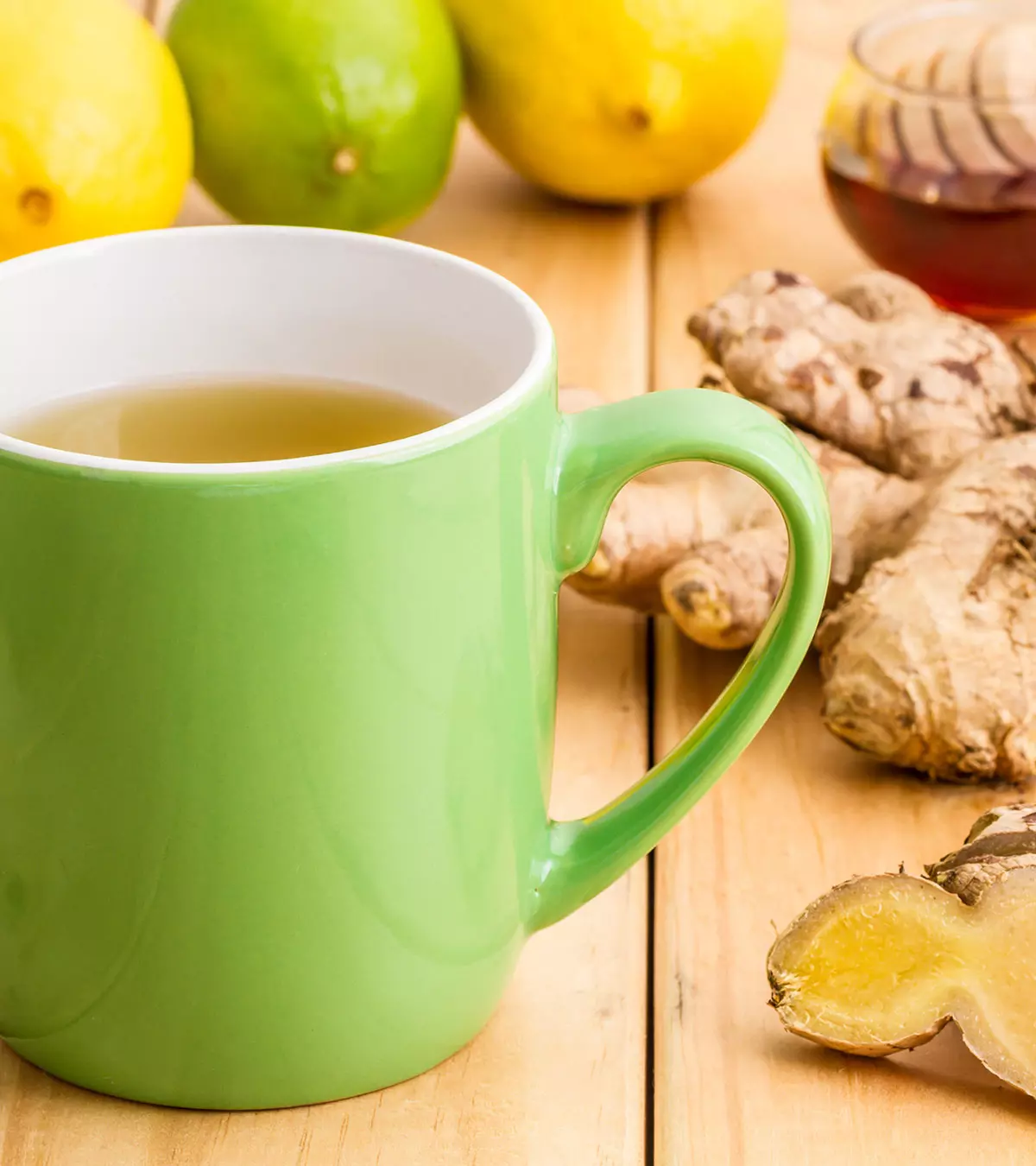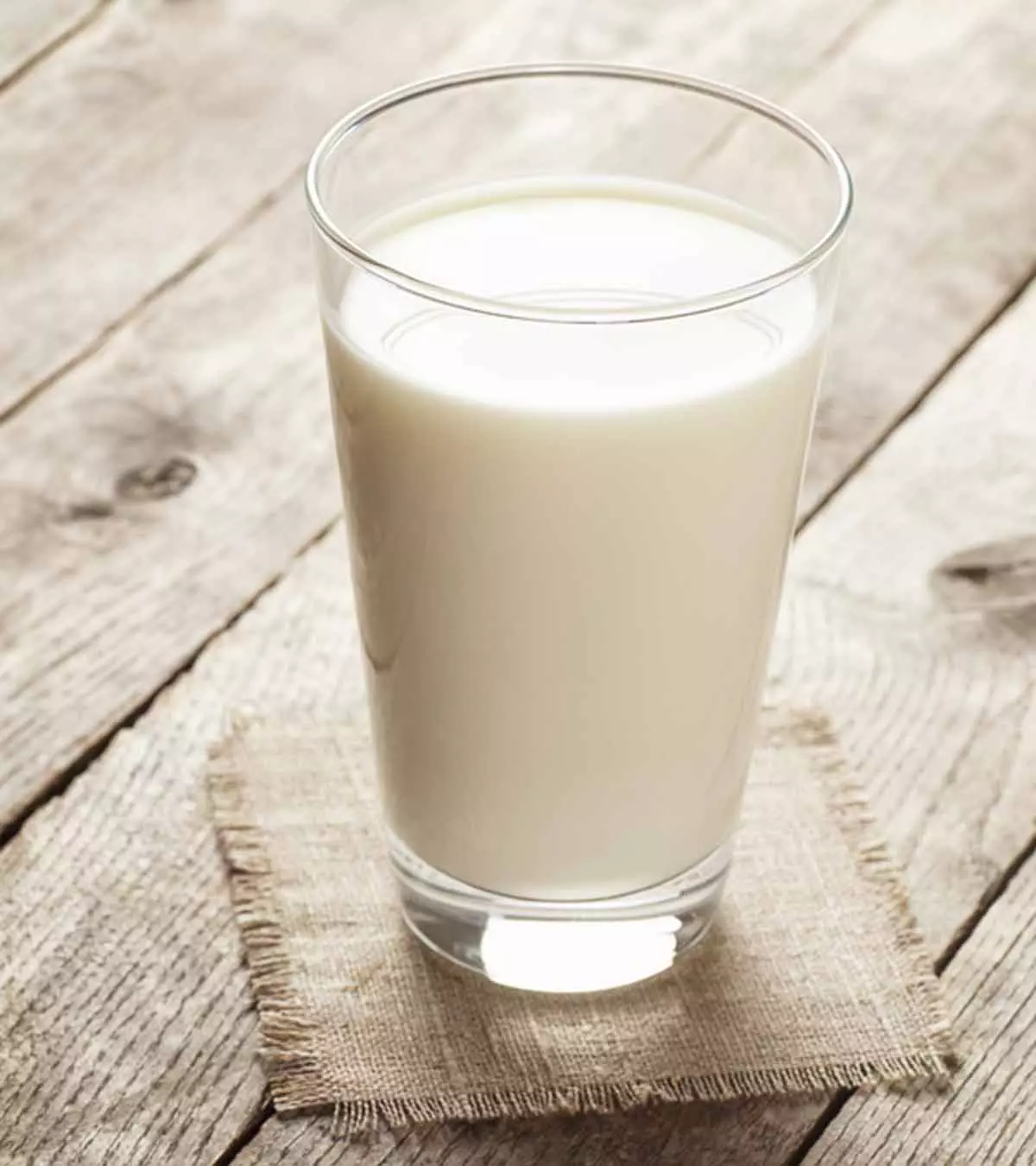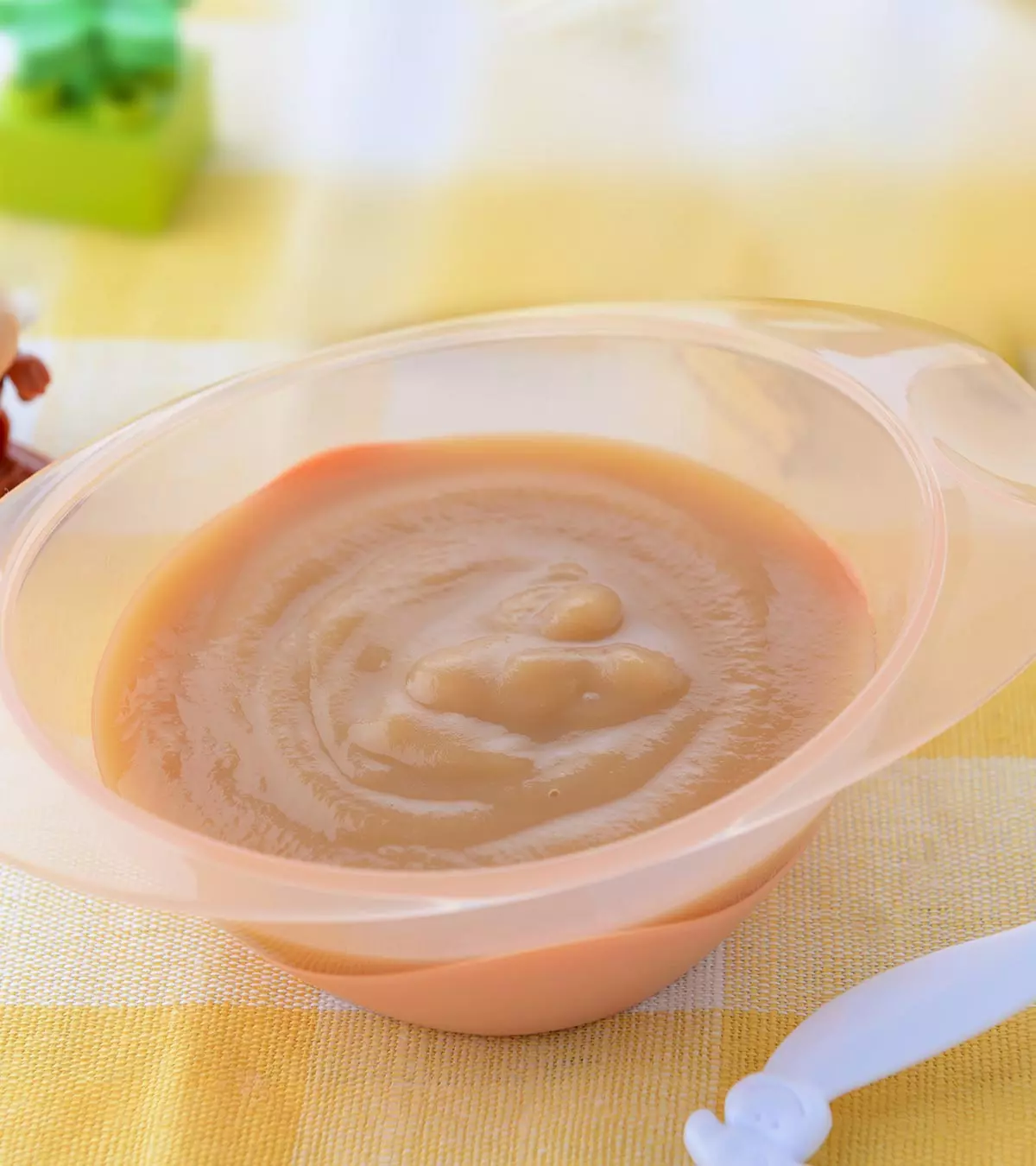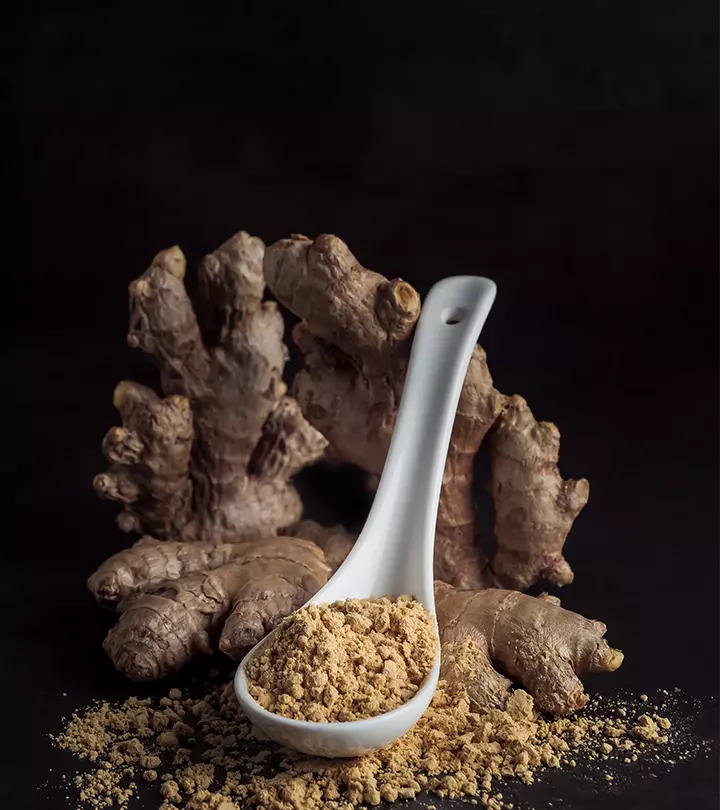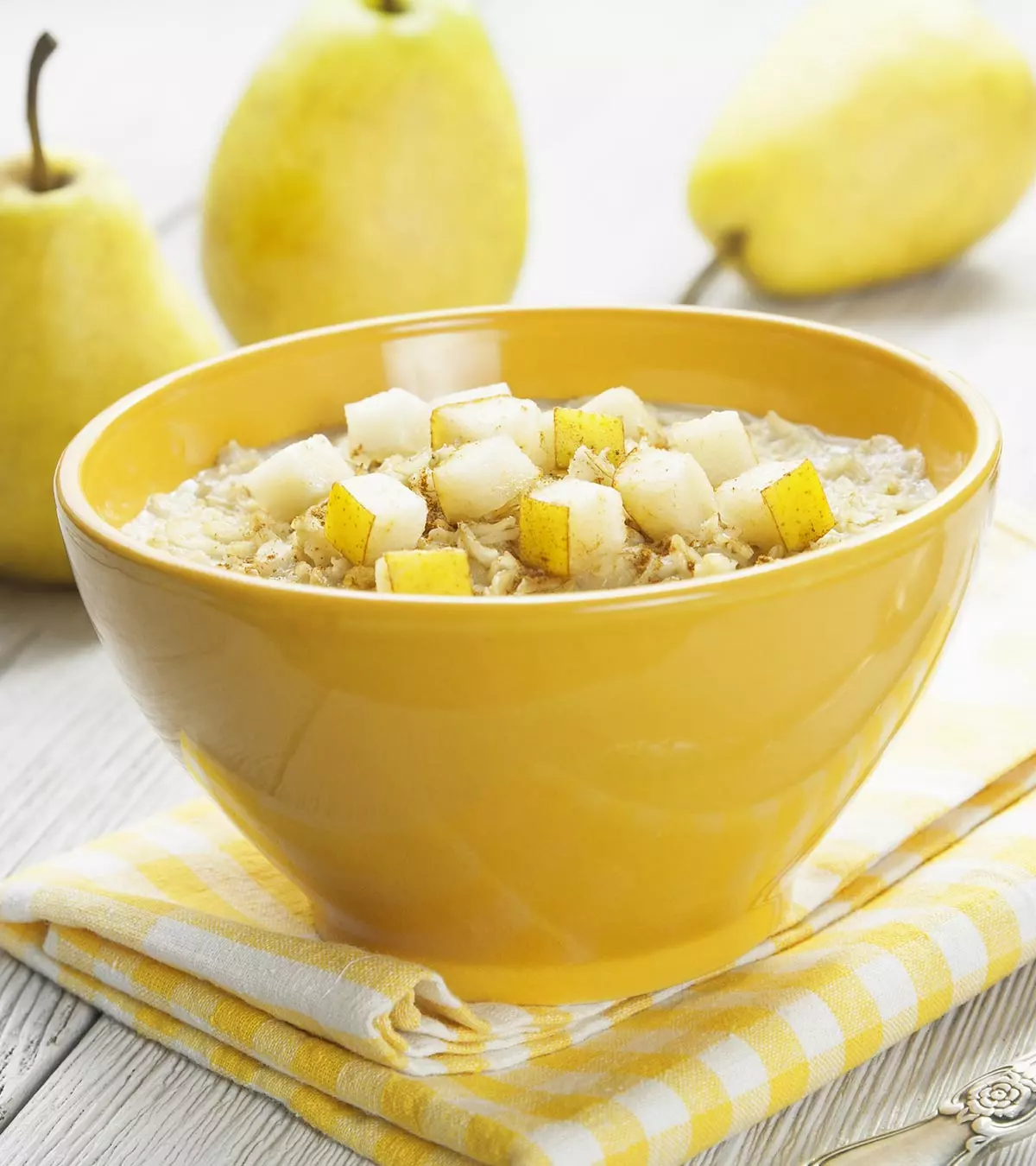
Image: Shutterstock

Licorice is a herb with several medicinal benefits. However, women may be curious to know about the safety of licorice during pregnancy. People have long used it to treat various health conditions, such as liver issues, arthritis, and Lyme diseaseiA bacterial infection transmitted by an infected tick bite, causing joint pain, swelling and flu-like symptoms. , to name a few. However, pregnant women should avoid the consumption of this herb because certain compounds present in it may have adverse health effects, such as the development of headaches, water retention, and fatigue. Read on the post to understand the health benefits of licorice, its safety for expecting mothers, and its side effects when consumed during pregnancy.
Key Pointers
- Licorice root has health benefits for heartburn, asthma, ulcers, liver problems, arthritis, and depression.
- Pregnant women should avoid licorice root due to potential health hazards such as fatigue, high blood pressure, water retention, edema, and heart attack.
- Excessive consumption of licorice root can lead to miscarriages, preterm delivery, impaired placenta, and low cognitive skills in the baby.
- Lactating women should also avoid licorice root to prevent potential health hazards to their babies.
What Is A Licorice?
Licorice is the root of the Glycyrrhiza glabraiA plant whose root extract is used in traditional Chinese medicine as a culinary and therapeutic agent. plant. It not only has a sweet flavor but is replete with many anti-depressant compounds too (1). Several herbal remedies use licorice for its potential health benefits. However, it is not safe for everyone. Remember, while natural supplements and herbal teas during pregnancy may help aid digestion and boost the immune system, it’s important to understand their potential benefits and risks before consuming them.
What Are The Health Benefits Of Licorice?

Image: Shutterstock
Licorice root is an excellent natural remedy for several health conditions including heartburn, body odor, asthma, athlete’s foot, fungal infections, and viral infections. It can also offer therapeutic benefits for treating ulcers, liver problems, tuberculosis, yeast infections, cough, chronic exhaustion, canker soresiTiny whitish lesions developing inside the mouth causing pain and difficulting to eat and speak. , Lyme disease, arthritis, baldness, melancholy and even HIV! Licorice is an effective cure for depression and nervousness as it helps in regulating the stress hormones. Its pharmacological properties could help prevent the following health complications (2) (3):
- Cardiovascular diseases
- Symptoms of Menopause
- Skin problems
- Herpes
- Shingles
- Digestive issues
- Weight loss
- Allergies
Yet, you need to remember that consumption of licorice root could lead to hormonal changes during pregnancy.
 Did you know?
Did you know?Is Licorice Root Safe During Pregnancy?
According to the University of Maryland Medical Center, pregnant women must avoid the consumption of licorice.
While this root offers multiple medicinal benefits, it also contains glycyrrhiziniA compound found in the roots of the liquorice plant that impart it a characteristic sweet flavor. that can cause health problems like headaches, fatigue, high blood pressure, water retention, edema, and even heart attack!
While only high consumption of licorice root in pregnancy can cause the above maternal health issues and disruption in fetal development, smaller amounts of it may cause side effects like numbness or pain in the limbs (1).
Side Effects Of Licorice Consumption During Pregnancy
To ensure the safety of both mother and baby, it’s always best to seek medical advice and consult with a maternal-fetal medicine specialist before consuming licorice in any form during pregnancy.
Recent studies reveal the health risks and contraindications associated with licorice root and pregnancy can lead to the following health complications:
- A high dose of licorice extract during pregnancy may cause a miscarriage or a preterm delivery. A study in the American Journal of Epidemiology links high licorice consumption to a shorter gestation period. Licorice can double the risk of premature birth (4).
- Experts from Edinburgh and Helsinki universities state that the consumption of licorice root during pregnancy can impair the placenta. The compound glycyrrhizin could allow the mother’s glucocorticoids or stress hormones, such as cortisol, to reach the baby and adversely affect the fetal brain development.. Hence, it can lower the intelligence levels and increase the behavioral problems in the child (5).

Image: Shutterstock
- Another study reveals consuming high amounts of licorice root when pregnancy can take a toll on a child’s cognitive skills. It can also make children prone to suffering from conditions like attention deficit hyperactivity disorder or ADHD (6).
 Caution
CautionLicorice root is one of the herbs to avoid during pregnancy. Scientists strongly advise pregnant and lactating women to refrain from consuming this herb in order to safeguard their babies from potential health hazards. Teratogenicity is a concern when it comes to consuming licorice root during pregnancy, which could lead to congenital abnormalities.
Remember, it is always better to be safe than sorry, especially during pregnancy. Since your baby’s growth and your health is at stake during this critical period you should strictly avoid consuming any unsafe food. If you are keen to try natural remedies to cure any ailment during pregnancy, it is better to seek a go-ahead from your doctor first.

Image: Shutterstock
Frequently Asked Questions
1. How much licorice is unsafe in pregnancy?
Consuming around 500mg of glycyrrhizin per week is considered high and may be unsafe in pregnancy (7).
2. Does licorice raise progesteroneiA female reproductive hormone that plays an important role in menstruation, pregnancy, and breastfeeding. ?
Licorice root may decrease estrogen and increase progesterone levels (8).
3. Can licorice root interact with other prenatal medications or supplements?
Licorice root can interact with medications such as diuretics, corticosteroids, drugs for diabetes, laxatives, and anticoagulants (1). Pregnant women should consult their healthcare provider before taking licorice root if they also take other medications or supplements.
4. Can licorice root be used to induce labor?
Licorice root has traditionally been used to stimulate contractions and induce labor, but the scientific evidence to support its effectiveness is scarce. As per a study, babies with heavy exposure to glycyrrhizin were significantly more likely to be born earlier (11).
5. Can licorice root be used to treat preeclampsia during pregnancy?
Licorice root may have beneficial effects on blood pressure and may help alleviate some symptoms of preeclampsia. In one study, glycyrrhizin was found to possess anti-inflammatory properties that could help alleviate preeclampsia and the preeclampsia-associated inflammatory reaction (12). However, do have licorice after doctor consultation if you wish to consume it for preeclampsia.
There are several known benefits of licorice root, including its anti-microbial, antidepressive, and anti-allergic nature. Nonetheless, it could be apprehensive for most moms who wonder if it is safe to consume licorice root during pregnancy. However, experts suggest that you avoid it as licorice root could put you at significant risk of medical complications during pregnancy, such as preterm labor, fetal abnormalities, etc. Therefore, it is ideal for keeping you and your baby safe and avoiding the risk of health hazards associated with consuming licorice root during pregnancy.
Infographic: Side Effects Of Licorice Root Consumption During Pregnancy
Licorice root, a popular herb with a long history in traditional medicine, may have potential side effects when consumed during pregnancy. It is important to consider these potential effects before deciding on whether or not to consume licorice root. Please refer to the infographic below to learn more about its side effects.

Illustration: Momjunction Design Team
Illustration: Is Licorice Root Safe During Pregnancy?

Image: Stable Diffusion/MomJunction Design Team
Curious about how licorice root consumption can be beneficial for your health? Explore the answers to your questions in this informative video.
References
- Licorice.
https://www.mountsinai.org/health-library/herb/licorice - Licorice Root.
https://www.urmc.rochester.edu/encyclopedia/content?contenttypeid=19&contentid=Licorice - Licorice.
https://healthy.kaiserpermanente.org/health-wellness/drug-encyclopedia/drug.ferrous-sulf-licorice-root-ext-75-mg-tablet.446210 - Timo E. Strandberg et al.; (2002); Preterm Birth and Licorice Consumption during Pregnancy.
https://academic.oup.com/aje/article/156/9/803/256317 - Warning on liquorice in pregnancy.
http://news.bbc.co.uk/2/hi/uk_news/scotland/edinburgh_and_east/8292392.stm - Katri Räikkönen et al.; (2009); Maternal Licorice Consumption and Detrimental Cognitive and Psychiatric Outcomes in Children.
https://academic.oup.com/aje/article/170/9/1137/165310 - Licorice.
https://www.drugs.com/npp/licorice.html - Hormone Balance: The Key to Breast Cancer Prevention.
https://womeninbalance.org/seventh-woman/hormone-balance/ - Katri Räikkönen et al.; (2017); Maternal Licorice Consumption During Pregnancy and Pubertal Cognitive and Psychiatric Outcomes in Children
https://pubmed.ncbi.nlm.nih.gov/28158597/ - New Study Suggests Women Should Avoid Eating Licorice during Pregnancy
https://www.rileychildrens.org/connections/new-study-suggests-women-should-avoid-eating-licorice-during-pregnancy - T. E. Strandberg et al.; (2001); Birth outcome in relation to licorice consumption during pregnancy
https://pubmed.ncbi.nlm.nih.gov/11390327/ - Fang Liu et al.; (2025); Glycyrrhizin potentially suppresses the inflammatory response in preeclampsia rat model
https://www.sciencedirect.com/science/article/abs/pii/S2210778920301331?via%3Dihub
Community Experiences
Join the conversation and become a part of our nurturing community! Share your stories, experiences, and insights to connect with fellow parents.
Read full bio of Jyoti Benjamin
Read full bio of Ria Saha
Read full bio of Swati Patwal
Read full bio of Dr. Joyani Das

 Quick fact
Quick fact









